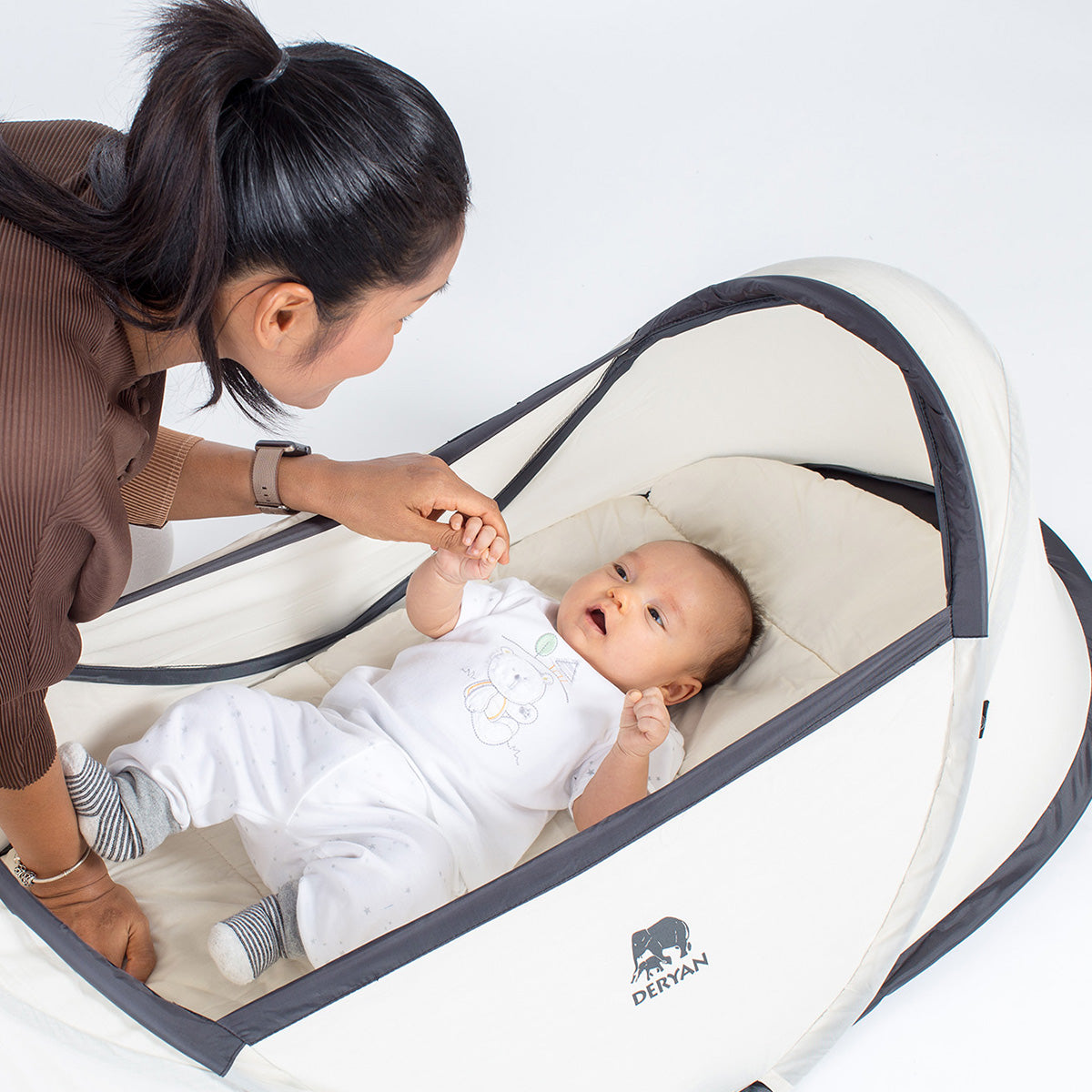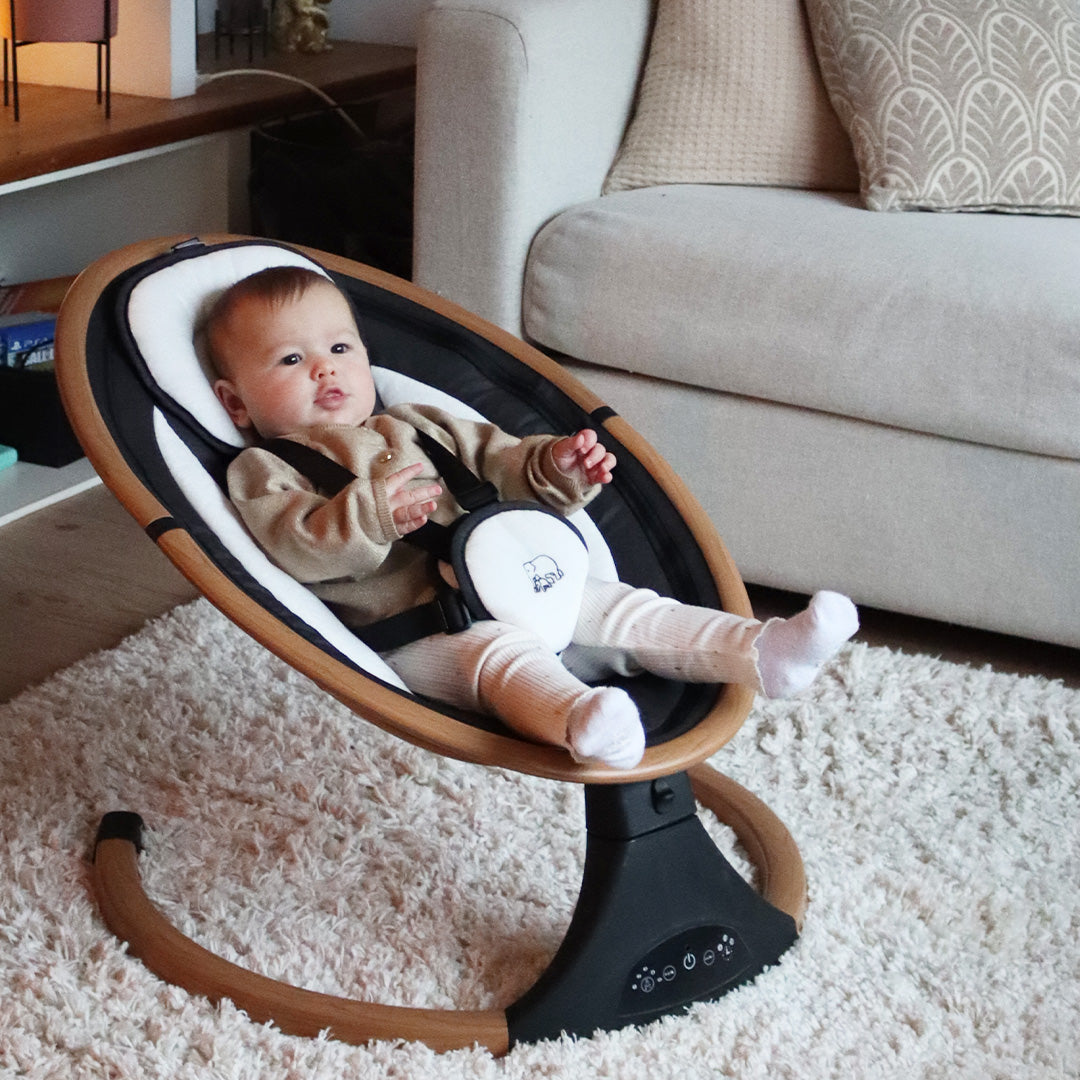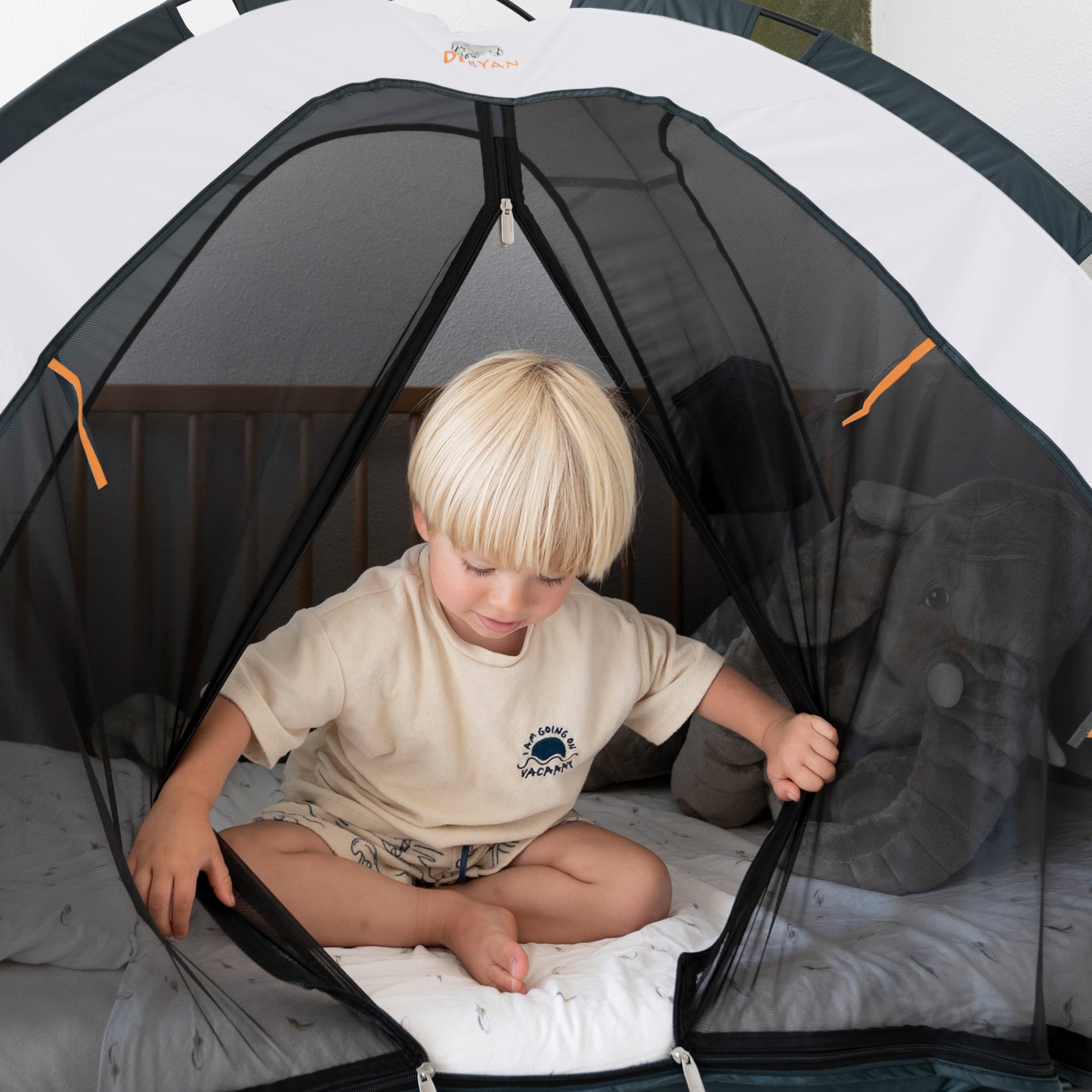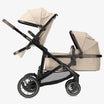Eating with kids
Eating with kids isn't always easy. They often don't finish their plates, make a mess, complain about not liking the food, or want to leave the table. In this blog, we'll share some tips on how to best handle mealtimes with children.
Tip 1: Less appetite is okay
Make sure your expectations of your child are realistic. Toddlers often find it difficult to sit still for long periods. They get distracted easily. They also quickly become restless and fidgety if they find the meal takes too long or is boring. There will be some things they don't (yet) like. As long as you offer them a varied diet, there's no need to force them to eat anything. All children have days when they have less appetite.
Tip 2: Eat at fixed times
It's best to have a meal three times a day and, in addition, a snack in the morning and afternoon at fixed times. Give your child a portion that you know he/she can finish. Let your child ask for more if he/she has eaten everything. Explain to your child that he/she is only allowed to eat at these times and is not allowed to take snacks themselves. It can be useful to set a fixed time for the duration of the meal. Make it clear to your child how long you will be eating. Often 20 to 30 minutes is enough. It can be helpful to use a (cooking) timer for this.
Tip 3: Tell table rules
Prepare your child for the meal so that he/she has time to finish what he/she is doing. Tell them what the rules are at the table. Limit yourself to 2 or 3 rules. When telling the rules, try to say what your child is allowed to do instead of what they are not allowed to do. For example, 'stay seated until you are allowed to leave the table', 'eat with a spoon or fork' or 'empty your mouth before you start talking'. You can choose to have your child learn to name the rules themselves over time. Decide in advance how you will react to unwanted behavior. Tell your child what happens if he/she does not follow the rules.
Tip 4: Reward your child
If your child follows the rules well, you may find it nice to reward him/her extra for it. Tell your child what the reward is if he/she follows the rules during the meal. For example: special drinks or food, a game after the meal, or an extra story before going to sleep.
Tip 5: At the table when food is ready
Make sure everything you need is ready before you tell your child that he/she can come to the table. This will prevent unnecessary waiting. Put your child in his/her chair when the food is ready. Put toys or other things that can distract out of sight. For example, turn off the television.
Tip 6: Ask and tell
Praise your child when they eat neatly and follow the rules. Encourage your child to only speak when their mouth is empty. Try to start a conversation by asking about their day. You can also choose to talk about your own day. This way, the emphasis isn't so much on whether or not they're eating a lot, but more on enjoying each other's company.
Tip 7: Ignore minor issues
It's best to 'appropriately ignore' minor issues such as whining, nagging, dawdling, or playing with food. Continue eating calmly and don't look at your child. Keep this up until the problem behavior stops. Involve them in the conversation again, for example. Be prepared that the behavior often gets worse at first when you start ignoring it. If you ignore behavior for a while and then react, your child learns that they have to keep going. Of course, there is also behavior that is difficult to ignore, such as repeatedly getting up from the table to play with siblings or throwing toys. If this happens, tell your child to stop immediately and say what they should do instead.
Tip 8: Stop unwanted behavior
Separate your child if they don't do what you ask or don't follow the rules again. Tell your child what went wrong and what the consequence is. Place your child close to you, on a chair. Tell your child that they must be quiet for 2 minutes before they can leave the quiet spot. Do not give your child any attention during the quiet time. If your child cannot sit still, proceed to the time-out method. This means that you remove your child from the situation where the problem arose. The intention of this is for your child to calm down again. Take your child to an uninteresting space or room and say that they must be quiet for 2 minutes. Praise your child as soon as they behave well. It is possible that you will have to repeat the quiet time or the time-out a few times before the unwanted behavior stops.
Tip 9: Compliment after meal
The meal will be over after about 20 or 30 minutes, or sooner if everyone is done eating. Clear the plates from the table, even if your child is not finished eating. Tell your child after the meal what you thought went well during the meal. Praise your child and give the reward you agreed upon beforehand. Do not give any more food until the next meal. Or briefly describe the rule that your child has forgotten and set a goal for the next time. For example: 'Tomorrow we will try again to stay seated at the table'.







































Leave a comment
This site is protected by hCaptcha and its Terms and Conditions and Privacy Policy apply.